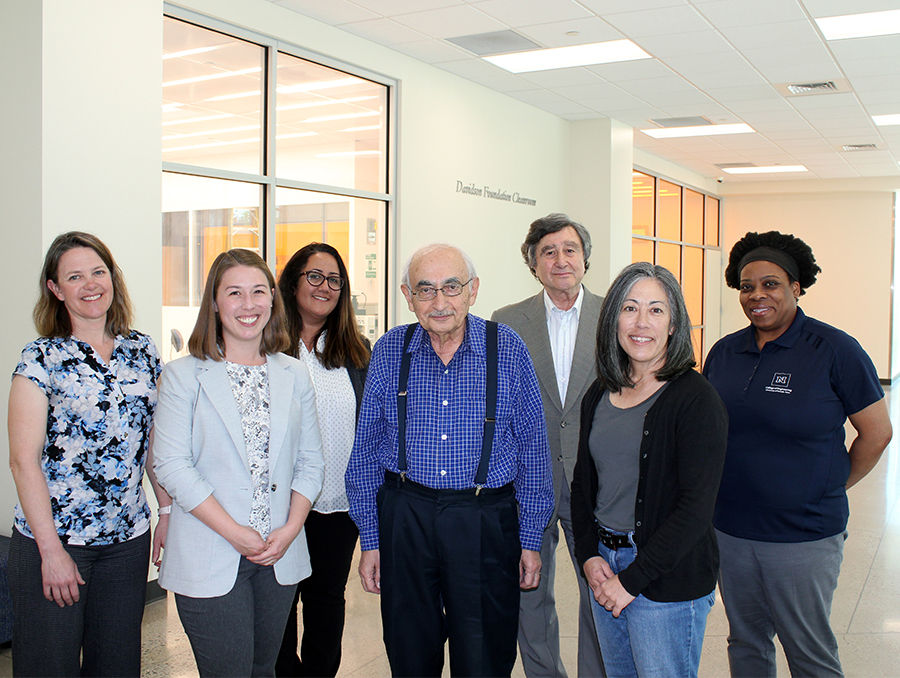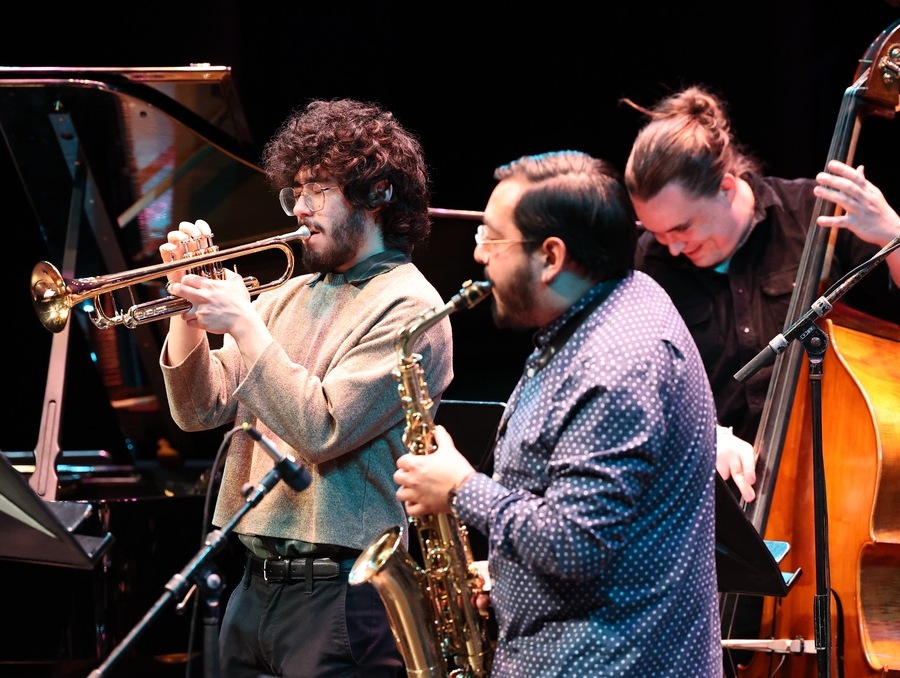RENO, Nev. - When you stare at the computer screen and focus on the black dot in the center of a moving gray square with a black bar at the bottom, guess what happens. The bar gets smaller-or does it?
According to the Gideon Caplovitz, a vision scientist and University of Nevada, Reno assistant professor of psychology in the Cognitive and Brain Sciences Program, it is simply an illusion; a mistake the brain makes because we live in a three-dimensional world but view it with eyes that produce two-dimensional retinal images like a camera.
"Our ability to detect the size of an object out in the world is fundamentally ambiguous," Caplovitz said. "A tree a mile away produces a small retinal image, but up close it produces an enormous image. We can't just rely on retinal image. We have to incorporate other sources of information such as the size of surrounding objects. If the tree is located by a gigantic building, it might looker smaller than if it is next to a small refrigerator."
For the third time, Caplovitz has been named a top 10 finalist in the Best Illusion of the Year Contest, an international contest sponsored by The Neural Correlate Society, a nonprofit organization that promotes scientific research into the neural correlates of sensory perception, awareness and cognitive experience. The society includes visual scientists, ophthalmologists, neurologists and visual artists.
The contest completed its ninth year this month and is held annually in Naples, Fla., during the same week the Vision Sciences Society holds its annual meeting, one of two major vision science conferences in the world.
Because visual illusions are those perceptual experiences that do not match the physical reality, they have been used for hundreds of years to investigate how people see the world. The study of visual illusions is important in understanding the basic mechanisms of sensory perception as well as finding cures for diseases of the visual system.
Caplovitz's top 10 finish this year, in 2011 and in 2006, when he captured a third place trophy with his winning illusion, is based upon the selection by a panel of international judges. The top 10 finishers then have five minutes to present their illusion on stage in front of a large audience. The crowd selects the winning three. Go to http://illusionoftheyear.com/cat/author/gideon-caplovitz/ to see his three top 10 illusions.
"It's quite a spectacle to be part of the presentations," Caplovitz said. "It's so nerdy, it's hard to describe. They play loud rock music as we go onstage. This year approximately 1,000 people attended, which included vision scientists from across the globe."
According to Caplovitz, the contest started with three main goals: to celebrate illusions, to highlight particularly compelling and important illusions and to serve as a bridge to bring the science to the public.
Renowned Italian sculptor Guido Moretti donates the trophies for first, second and third place winners. The trophies are actually illusions themselves that show different views depending on the angle of vision.
"To some extent illusions serve as the backbone to vision science and understanding how the brain processes visual information and enables us to see," Caplovitz said. "Because illusions are mistakes the brain is making, we see something that is not there. We see things different than they really are. As our mothers would say, we can learn from our mistakes."
We have a very strong vision sciences research program here at the University," Caplovitz said. "The vision sciences serve as a point of overlap for several of our cognitive and brain sciences faculty including a new tenure-track faculty member, a new research scientist and a visiting assistant professor who will all be coming on board over the summer."
Anyone interested in gaining research experience or participating in a vision experiment should contact him at gcaplovitz@unr.edu or (775) 784-6828.
Funding for the Caplovitz Vision Lab comes, in part, from the University Center for Integrative Neuroscience which is supported by a grant from the National Institutes of Health Centers of Biomedical Research Excellence (COBRE).











